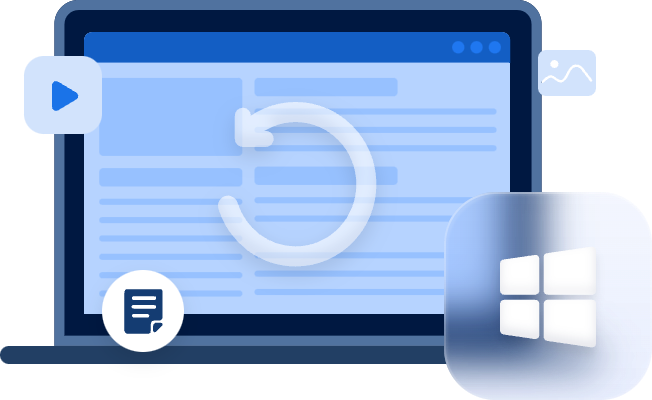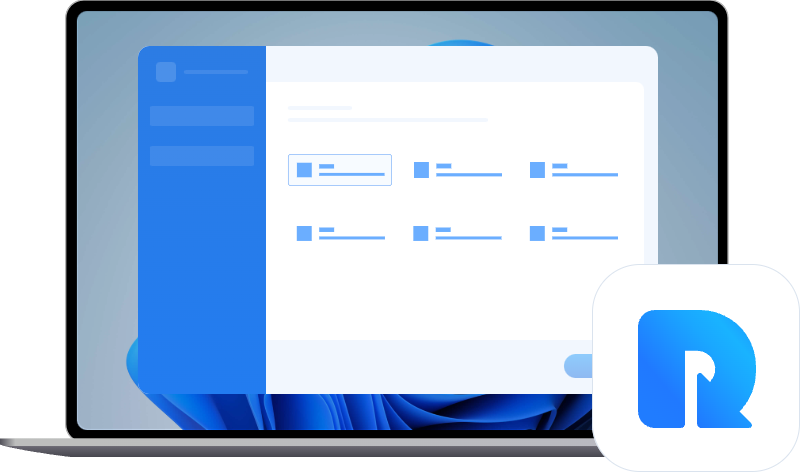Unveiling the Myth: Does Formatting a Laptop Make It Faster?
This article solves the question of whether formatting a laptop can truly boost its speed. We explore the reasons behind users choosing to format their laptop hard drives, discuss potential risks, and provide solutions for file recovery with MyRecover. Additionally, discover practical steps and backgrounds to improve laptop speed.
In the ever-evolving world of technology, users often grapple with the question of whether formatting a laptop can genuinely boost its speed. In this guide, we embark on a journey to demystify the impact of formatting on laptop performance.
From understanding the motivations behind formatting to exploring potential risks and offering solutions for file recovery, we leave no stone unturned. Let's dive into the intricacies of laptop optimization and discover the truth behind this common belief.
Why Users Opt for Formatting Laptop Hard Drives
Formatting a laptop hard drive is a decision often driven by specific reasons:
1. Performance Issues:
Users may choose to format their laptops to address sluggish performance. Over time, accumulated clutter and fragmented data can impact speed, leading users to seek a fresh start.
2. Virus or Malware Cleanup:
In cases of persistent malware or virus attacks, formatting becomes a drastic but effective measure to eliminate these threats and restore the laptop to a clean state.
3. Operating System Reinstallation:
Some users opt for formatting when reinstalling the operating system. This ensures a clean slate for the new installation, minimizing potential conflicts and issues.
4. Data Privacy Concerns:
When selling or donating a laptop, users may format the hard drive to wipe all data, addressing privacy concerns and preventing unauthorized access to personal information.
While these reasons may seem valid, it's essential to weigh the benefits against potential risks.
Potential Risks of Disk Formatting
While formatting can bring advantages, it comes with inherent risks:
1. Data Loss:
The primary risk of formatting is data loss. Without proper backup, critical files and documents may be irreversibly erased during the formatting process.
2. Operating System Corruption:
Inexperienced users may accidentally format the system partition, leading to the corruption of the operating system. This can result in a non-functional laptop.
3. Incomplete Formatting:
Interruptions during the formatting process, such as power outages or sudden system crashes, can lead to incomplete formatting. This may render the laptop unusable or result in data corruption.
4. Recovery Challenges:
Retrieving data from a formatted drive can be challenging. Traditional recovery methods may prove inadequate, emphasizing the importance of using specialized tools like MyRecover.
Recovering Files from Formatted Laptop Hard Drives with MyRecover
MyRecover stands as a powerful ally in the aftermath of formatting:
1. Download and Install MyRecover:
Begin by downloading MyRecover from the official website and installing it on your system.
2. Select Formatted Drive:
Launch MyRecover and choose the formatted drive as the target for file recovery. This could be an external hard drive or the laptop's primary storage.
3. Initiate a Deep Scan:
Allow MyRecover to conduct a deep scan of the formatted drive. This in-depth process identifies recoverable files, even in the aftermath of formatting.
4. Preview and Recover:
MyRecover presents a detailed list of recoverable files. Preview them to ensure accuracy, then select the files you want to recover.
5. Save Recovered Files:
Click on the "Recover" button, choose a secure destination for the recovered files, and let MyRecover restore your valuable data.
MyRecover's advanced features make it a reliable solution for recovering files after formatting, mitigating the risks associated with data loss.
Practical Ways to Improve Laptop Speed
If your goal is to boost your laptop's speed without resorting to formatting, consider these practical steps:
1. Upgrade Hardware Components:
Upgrading RAM or switching to a solid-state drive (SSD) can significantly enhance your laptop's speed and responsiveness.
2. Remove Unnecessary Startup Programs:
Streamline your laptop's startup process by disabling unnecessary programs. This reduces the burden on system resources and accelerates boot times.
3. Perform Regular Disk Cleanup:
Regularly clean up temporary files, cache, and unnecessary system files. This helps free up storage space and improves overall system performance.
4. Update Drivers and Software:
Outdated drivers and software can contribute to performance issues. Ensure that your laptop's drivers and applications are up to date for optimal speed.
5. Manage Background Processes:
Monitor and manage background processes running on your laptop. Some applications may consume resources even when not in use, impacting overall speed.
Implementing these steps can lead to a noticeable improvement in your laptop's speed without the need for drastic measures like formatting.
In Conclusion:
In the quest for a faster laptop, the decision to format the hard drive should be approached with caution. While it can address certain issues, the risks of data loss and potential system corruption are significant factors to consider. MyRecover emerges as a reliable solution for data recovery after formatting, ensuring that critical files are not lost in the process.
Additionally, practical steps to enhance laptop speed without formatting provide alternative avenues for users seeking performance improvements.
FAQs:
1. Can formatting a laptop make it faster instantly?
While formatting can potentially improve performance by addressing clutter and issues, the improvement may not be instant. Factors such as hardware limitations and the need for subsequent software installations can influence the speed gain.
2. Are there specific types of files that MyRecover cannot recover after formatting?
MyRecover is designed to recover a wide range of file types. However, the success of recovery depends on factors such as the extent of formatting and the overwriting of data. In some cases, overwritten or heavily damaged files may be challenging to recover.
3. What precautions should I take before formatting my laptop to avoid data loss?
Before formatting, ensure that you have a complete backup of essential files. Additionally, double-check the selected drive to avoid accidental formatting of the wrong partition. Using tools like MyRecover for data recovery is recommended in case of unforeseen data loss.


